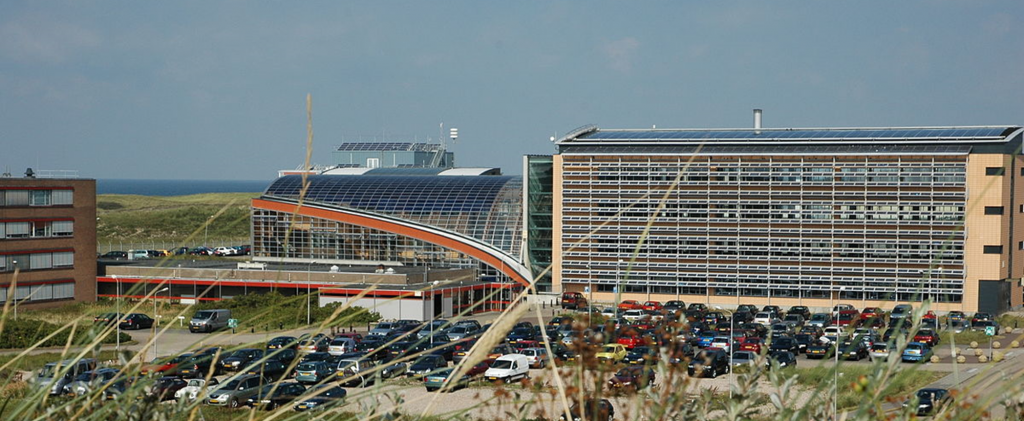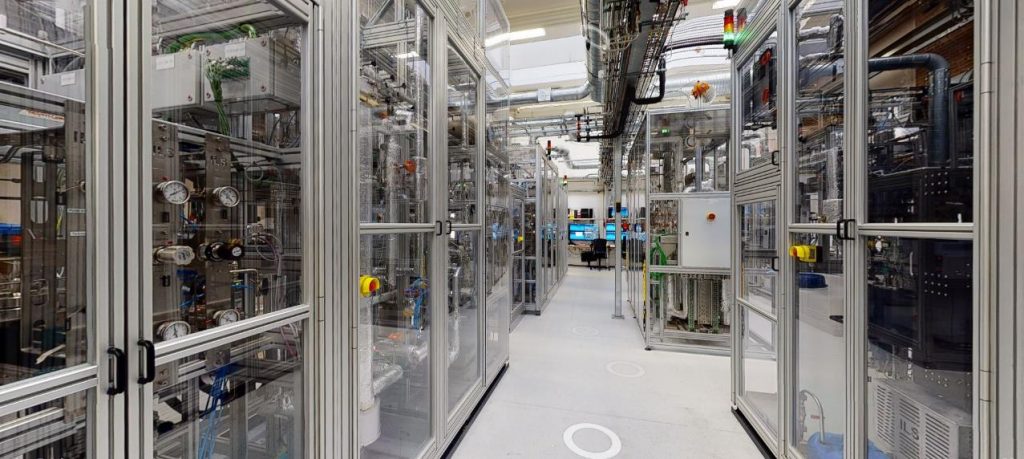The CONVERGE consortium is glad to invite you at the
Workshop
“Innovations in Advanced Biofuels Production“
at TNO in Petten (NL) on 18th May
At the following links, you can find videos and a 3D virtual tour of the TNO facilities dedicated to Biofuels…
Workshop agenda
Time | Presentation | Organization | Speaker | Download | |
8:30 - 9:15 | Access procedures at TNO | ||||
9:15 - 9:30 | Welcome reception | ||||
CONVERGE project | 9:30 - 9:45 | Politecnico di Milano, Department of Energy | Giulio Guandalini | ||
9:45 - 10:05 | TNO Energy Transition, STIP | Marija Saric | |||
10:05 - 10:25 | TNO Energy Transition, BCT | Eleni Liakakou | |||
Advanced biofuels | 10:25 - 10:45 | TNO Energy Transition, BCT | Evert Boymans | ||
10:45 - 11:10 | Coffee break | ||||
Advanced biofuels | 11:10 - 11:30 | BTG - Biomass Technology Group BV. | Evert Leijenhorst | ||
11:30 - 11:50 | VTT, Bioenergy & Thermochemical Processes | Juha Lehtonen | |||
11:50 - 12:10 | TU Darmstadt, Energy Systems and Technologies (EST) | Fabiola Panitz | |||
Renewable fuels | 12:10 - 12:30 | TNO Energy Transition, STIP | Jurriaan Boon | ||
12:30 - 14:30 | Laboratories tour and lunch | ||||
Renewable fuels | 14:30 - 14:50 | CERTH - Chemical Process and Energy Resources Institute (CPERI) | Stelios Stefanidis | ||
14:50 - 15:10 | TNO Energy Transition, SPES | Carlos Sanchez Martinez | |||
15:10 - 15:30 | KIT, Institute for Micro Process Engineering (IMVT) | Francisco Vidal Vazquez | |||
15:30 - 15:45 | Coffee break | ||||
15:45 - 16:00 | European Commission Directorate - General Research and Innovation | Maria Georgiadou | |||
16:00 - 16:30 | Round table | ||||
17:00 | Closure drinks | ||||
Organized by CONVERGE consortium, TNO and IEA Bioenergy (Tasks 33 & 39).

Location: Petten
Westerduinweg 3
1755 LE Petten (NL)
When visiting our site in Petten, you need to identify yourself with a valid passport or national ID card. A drivers license will not be accepted.
Free parking available onsite.

Presentations abstracts
Membrane reactor to enhance methanol production from CO2 and H2 in biomass to biodiesel route
TNO Energy Transition, STIP – Marija Saric
Liquid biofuels have a significant role to play in meeting the climate change targets. Presently approximately 0.1 percent of all biomass is used to produce biodiesel, owing to an inefficient and complex production process. The EU CONVERGE project demonstrates a new innovative process, that will make biodiesel competitive with fossil fuels in terms of both effectiveness and price. One of the technologies developed in this project, is an enhanced methanol membrane reactor. In-situ methanol and/or water separation greatly enhances per pass production of methanol, thereby reducing equipment size significantly reducing CAPEX and OPEX. This presentation focuses on the experimental results of the multi-tubular membrane reactor, using ceramic supported polymeric membranes and total membrane area of 0.25 m2, for production of methanol from CO2 and H2.
Novel catalytic tar cracking reactor for bio-BTX co-production from gasification
TNO Energy Transition, BCT – Eleni Liakakou
One of the technologies developed in H2020 CONVERGE project, is the catalytic cracking of tar compounds, formed during indirect gasification, to C6-C8 aromatic components (BTX). Recovery of the bio-BTX will create an extra revenue stream that will maximize the value of the feedstock. For the conversion of tar compounds present in the product gas, a novel – dual bed – fluidized catalytic reactor was designed by TNO. In order to identify the optimum catalytic material, six commercially available catalysts, traditionally applied in the fluid catalytic cracking (FCC) process, were tested in preliminary tests and their performance is assessed in terms of tar content and composition, as well as BTX concentration.
Innovative catalytic system for F-T liquids production
TNO Energy Transition, BCT – Evert Boymans
Progress in advanced biofuels production through Fischer-Tropsch. Recent work from BECOOL demonstration experiment with MILENA gasification up to Fischer-Tropsch synthesis at mini-pilot scale.
Pyrolisis and gasification to provide a flexible pathway for advanced biofuel production
BTG – Biomass Technology Group BV – Evert Leijenhorst
The presentation will discuss the production of advanced biofuels from residual biomass materials through fast pyrolysis and catalytic gasification. Experimental results achieved in an oxygen blown autothermal catalytic reformer will be presented, demonstrating feedstock-flexible operation and production of a high-quality syngas.
Production of aviation and marine fuels by biomass liquefaction and upgrading by HDO
VTT Technical Research Centre of Finland – Juha Lehtonen
Hydrothermal liquefaction and fast pyrolysis are main technologies to liquefy biomass-based residues. Eventhough the properties of fast pyrolysis bio-oil (FPBO) and HTL bio-crude are very different, the main challenge is to upgrade these intermediates to high quality transportation fuels. The main techniques proposed for the upgrading of bio-oils to transportation fuels are based on hydrotreatment. In this presentation, different hyrotreatment technology options to be applied for the upgrading of FPBO and HTL bio-crude are reviewed.
Chemical looping gasification for sustainable production of biofuels
TU Darmstadt, Energy Systems and Technologies (EST) – Fabiola Panitz
The CLARA project develops a novel process for the production of biofuels based on chemical looping gasification (CLG), using a metal oxide to provide the oxygen for partial oxidation of a solid feedstock. Various oxygen carrier materials have been screened in lab-scale facilities regarding the suitability for CLG, and the natural ore ilmenite has been selected for pilot testing. CLG of straw pellets has been successfully tested in a small pilot plant. The next step is to demonstrate the full process chain in a 1 MWth pilot plant at TU Darmstadt.
Delivering on a decades-old promise: Renewable dimethyl ether (DME)
TNO Energy Transition, STIP – Jurriaan Boon
The production of renewable dimethyl ether (DME), or condensed methanol, is taking off rapidly. Apart from its favourable characteristics, which will be discussed, this is due to some very attractive direct synthesis routes that are currently being developed. This presentation highlights recent advances in renewable DME production and looks forward to promising research directions.
Catalytic technologies for the production of aviation fuels
CERTH – Chemical Process and Energy Resources Institute (CPERI) – Stelios Stefanidis
CPERI is developing in situ and ex situ catalytic pyrolysis technologies for the conversion of renewable and waste feedstocks to fuel intermediates, fuel additives and valuable chemicals. A recent example of the application of the technology is for the conversion of end-of-life tyres to kerosene-range aromatic hydrocarbons. Kerosene-range aromatic hydrocarbons are a key component (up to 25 vol%) of aviation fuels as they promote the lubricity of the fuel, they ensure elastomeric seal compatibility and they push the density to the desired specification range. Pyrolysis of end-of-life tyres produces a heavy aromatic oil product. Pyrolysis coupled with catalytic upgrading of the pyrolysis vapours can both increase the aromaticity of the oil and crack heavy components towards kerosene-range aromatic molecules. CPERI develops the technology based on bench-scale fixed bed reactors for catalyst pre-screening and on medium- to pilot-scale units with cascade bubbling and circulating fluidized bed reactors for process validation.
Direct electrochemical conversion of CO2 to formic acid: from lab to industry
TNO Energy Transition, SPES – Carlos Sanchez Martinez
Within the Electrons to high value chemical products (E2C) Interreg 2-Seas project, several Power-2-X technologies for the valorisation of CO2 are currently under development. One of them is the so-called Direct Route for the electrochemical conversion of CO2 to formic acid using renewable energy.
Activities in catalyst development electrode manufacturing and preparation, electrochemical reactor design, and pilot engineering and commissioning have been undertaken with the final goal of bringing the CO2 conversion to formic acid technology to TRL 6-7.
In addition, feasibility studies have been carried out to define the pathway for the implementation and deployment of this Power-2-X technology in the 2-Seas region for the decarbonisation of the chemical industry. The E2C Interreg 2-Seas consortium consists of 7 core partners and 35 industrial observer partners from the Netherlands, Belgium, France and the UK.
KEROGREEN: Production of kerosene using carbon monoxide as energy carrier
KIT, Institute for Micro Process Engineering (IMVT) – Francisco Vidal Vazquez
The direct activation of CO2 by plasmolysis enable a new and innovative route for production of synthetic fuels using CO monoxide as energy carrier. This presentation will focus on the KEROGREEN approach for synthesis of green kerosene using CO and H2O as feedstock. The presentation will show recent experimental results and present the soon-to-be commissioned KEROGREEN container-size pilot plant.
The EU future for biofuels
CINEA – European Commission – Maria Georgiadou
EU perspective for the role of advanced biofuels under the European Green Deal supporting green and digital development as well as the REPowerEU promoting EU energy security and reducing dependence of fossil fuel imports. Policies and financing support will be presented.

